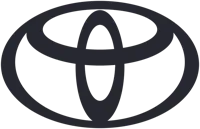Partitúra Live - Petőfi
Program series
Special programs
Classical/Contemporary
Partitúra Live - Petőfi
Sándor Petőfi was born 200 years ago this year. We know the year, but there are uncertainties about the location. Both Kiskunfélegyháza and Kiskőrös wish to have the poet, who was much seen, visited everywhere, passionate, and then disappeared after the War of Independence, and it is not known for sure where and when he died, so it is as if he is still alive.
Regardless of generation - from veterans and baby boomers to Z - he is present in our everyday lives: his poems have been with us from primary school at the latest. That is why we do not commemorate him, but simply revive his figure on the eve of the 175th anniversary of the 15 March 1848 revolution. We will talk about him - and much more on this occasion. Kiskunfélegyháza, Kiskőrös and Kiskunhalas: the theme and guest of the evening of 14 March on Partitúra Live is one of the most exciting counties in Hungary, Kiskunság, where summer is roaring, winter is fading and 'embraced by the arm of the Tisza-Danube'. And which, by the way, is our largest wine region... The language of the event is Hungarian.
The popular Duna TV show "Partitúra" has been running for five years, with seventy-five broadcasts from at least a hundred locations to its credit. For the creators: presenters Erika Miklósa and András Batta, director Peter Novák and chief cameraman András Horváth, the goal from the outset was to discover the cultural world of Hungary outside the capital. Music, sport, spirituality, environment, equal opportunities... were just some of the keywords of the series: All the things that make us human. Meanwhile, the crew got to know some fascinating personalities without whom the spiritual life of Hungarian villages and regions would be empty and poor. Renowned or anonymous heroes who have shaped and inspired communities with goals and values that stand out among the average of the day. Meeting them was heart warming. In our series, we would like to share our memories and enrich our experiences with new encounters in the form of informal conversations and music. The language of the event is Hungarian.


